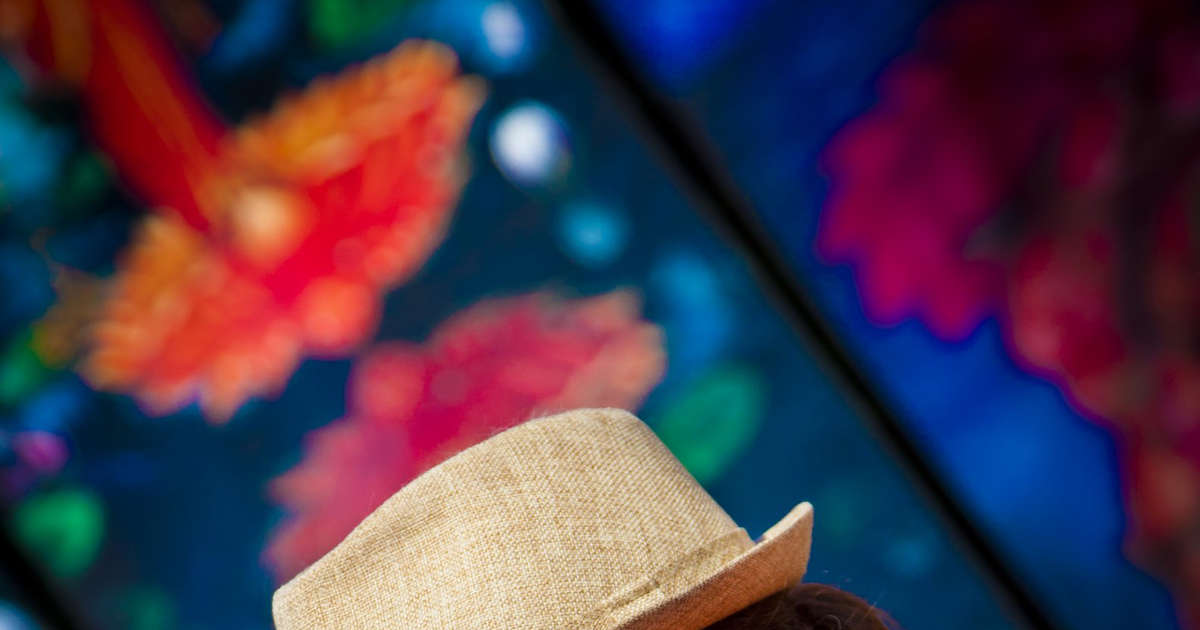
When Harry Styles and Beyoncé attend the Grammys on Sunday, they’ll be sharing the red carpet with artists often associated with hippies and cults. After a two-year push by over 400 musicians and record labels worldwide, the awards will for the first time recognise the ancient musical practice of chanting.
Hopefuls will be vying to make their mark in a renamed category: following a proposal to the Recording Academy, which is behind the awards, the Best New Age Album has become the Best New Age, Ambient or Chant Album.
As their names suggest, chant and ambient music stress tone and atmosphere over traditional musical structure. Most commonly associated with prayer, chanting is one of the oldest forms of music in history and is inspired by cultures from across the world, from music found in Hindu, Sikh, Sufi and Yoruba traditions to Buddhist mantras and Jewish cantorials.
But it has also made its mark in the pop world: in 1971, George Harrison produced The Radha Krishna Temple album through The Beatles’ Apple records, which featured tracks including Srila Prabhupada’s “Hare Krishna Mantra”.
Until now, chant has never really been seen as “real” music. “There’s often a misperception of chanting as a cult activity. But singing is an ecstatic experience available to all”, says the Los Angeles musician Dave Stringer, who is Grammy-nominated for his album Mantra Americana, produced with Melbourne-based artist Madi Das. Some tracks, like “Boro Sukher”, have a distinct country feel: in fact, the mantra music magazine The Bhakti Beat described it as “Ancient Eastern meets contemporary instrumentation with a hint of banjo-driven country twang” or “Country & Eastern”.
Chant is often associated with the Hare Krishna movement, continues Stringer – and is dismissed because of this. “The Hare Krishna movement simultaneously taught everybody a mantra – Hare Rama, Hare Krishna – and inadvertently caused many people to kind of fear it as well,” he says. “It’s unfortunate, because the mantra itself refers to the spiritual potential in all of us, and the experience of chanting it can be extremely joyful.”
But the Grammys category shows the variety of the genre. Stringer and Madi Das will compete with LA band White Sun, who won a Grammy in 2017, and three other acts. All together, the music ranges across guitar instrumentals, singing and tracks that have a tranquil emphasis featuring synthesisers and flutes.
Their presence at the awards reflects how chant music’s audience is growing. It may have more acolytes in America than Britain at present, but “mantra music is alive and well in the UK: there are mantra lounges and kirtan [a style of call-and-response song] festivals connected with the Hare Krishna movement as well as outside yoga studios”, says Madi Das. One star of the British scene is Jahnavi Harrison, a kirtan artist who has collaborated with American star Willow Smith and recently embarked on her first US tour.
In a world increasingly interested in mindfulness, it makes sense that chant is finally having its moment. Studies are increasingly showing the psychological benefits of chanting and mantram repetition (MR), which is the practice of repeating a word or phrase traditionally associated with Hinduism, Buddhism or other spiritual traditions.
The benefits exist even when the chanting is done virtually. Research published in August involving undergraduate students from a Californian university being taught MR online found that the practice can help to relieve stress, anxiety and depression.
The Journal of American College Health study was conducted by Jill E Bormann, a former clinical professor in nursing and health science at the University of San Diego. She is a pioneer of what’s called the mantram repetition programme (MRP), which is believed to stimulate concentration and has been linked to a significant slowdown of one’s thinking, drowning out negative thoughts. She has used it to treat post-traumatic stress disorder in veterans, burnout in healthcare workers and family caregivers, and insomnia in homeless women.
“Over the past 20 years, the scientific community has begun to study complementary therapies more rigorously,” says Bormann, adding that chanting and MRP are part of a “huge area of research that has just exploded”.
Other research, published in 2021 by Australian academics including Dr Gemma Perry from Bond University found that online chanting “may be a useful psychosocial intervention, whether practiced individually or in a group”. Perry completed a PhD in its psychological effects last year.
She originally turned to the practice to help her cope with depression and argues that it may be a more accessible technique than mindfulness, which requires the participant to observe their own thought processes. “With chanting you don’t need to have any skills to engage, you just vocalise. So this could be effective in places like schools.”
The Grammys have certainly inspired chanting musicians to raise the genre’s profile further. “I have heard from chant artists who are now planning on submitting their music and applying to become a part of the Recording Academy, inspired by this change,” says Seán Johnson, the lead singer of New Orleans-based Seán Johnson & The Wild Lotus Band, whose music combines sacred global chants, rock and gospel.
Johnson was among those rallying other musicians to push for chanting to be acknowledged by the awards. Previously, he says, chanting and ambient music were lumped into the New Age Grammys category, despite some chant artists saying they felt uncomfortable with this description, as the term ignored their music’s history and culture.
Stringer is hoping that this will be chant’s year. “For the first time chant is included in the category – it does seem good and right that a chant album would win”.
But there are more important things than claiming the trophy. The key is that chant music is now being recognised along mainstream pop – and becoming more accessible. As Stringer says: “If we do win I hope it encourages more artists and audiences to seek out this music.”
The Grammy Awards take place in Los Angeles on Sunday